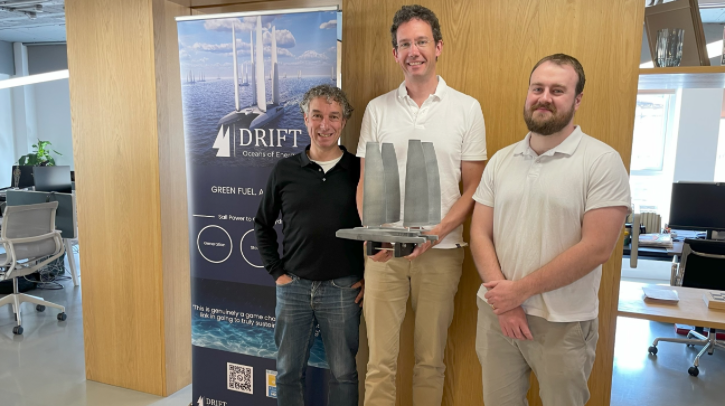British startup Drift Energy has closed its seed funding round with a total of £4.65m (US$4.99m) to scale and start production of what it states to be the first green hydrogen-producing vessel.
Green hydrogen vessels
With this investment, Drift Energy intends to deploy a fleet of sailing vessels that harness deep ocean wind to produce green hydrogen at sea and deliver it globally. Production of the first vessel is planned for 2025.
The startup highlighted that green hydrogen, produced via electrolysis using renewable energy, has a much lower carbon footprint than ‘grey’ hydrogen, which is produced from natural gas through steam methane reforming.
Drift Energy funding
The round was led by venture capital investor Octopus Ventures and supported by Blue Action Accelerator.
Ben Medland, founder and CEO of Drift, commented, “Octopus Ventures is a prolific and experienced investor in the field of deep tech, and we are thrilled to announce their investment in Drift. Alongside the support from Blue Action Accelerator, this funding enables us to drive with momentum into the next phase of our mission. We will work closely with Octopus and our advisory teams to bring our vision of ‘Oceans of Energy’ to life with that all-important first net positive ship.”
Mat Munro, investor at Octopus Ventures, added, “We’re incredibly excited about Drift and the team’s potential to lead the way in developing a truly innovative source of renewable energy. At Octopus Ventures, we’re backing the companies building a sustainable planet, and Drift’s ambitions are exactly what we’re looking for. We can’t wait for the day its first vessel sets out on its maiden voyage.”
George Northcott, co-founder of Blue Action Accelerator, stated, “Blue Action Accelerator’s mission is to help scale groundbreaking technologies that preserve marine environments and support coastal-dependent communities. Drift is the ultimate example of that – creating a new class of mobile renewable energy from the world’s seas and delivering it to where it is needed – from island nation communities to power-hungry ports. We are thrilled to be supporting them as they build their first vessels and bring a vision to life.”
In related news, the International Chamber of Shipping (ICS) recently launched a report that found that hydrogen-based fuel sources need to scale five times from current levels to keep the net zero by 2050 scenario within reach. It also identified that the heavy industry sector is expected to dominate global hydrogen demand by 2050, with South Korea, Japan and Europe being the first markets for hydrogen. Click here to read the full story.



